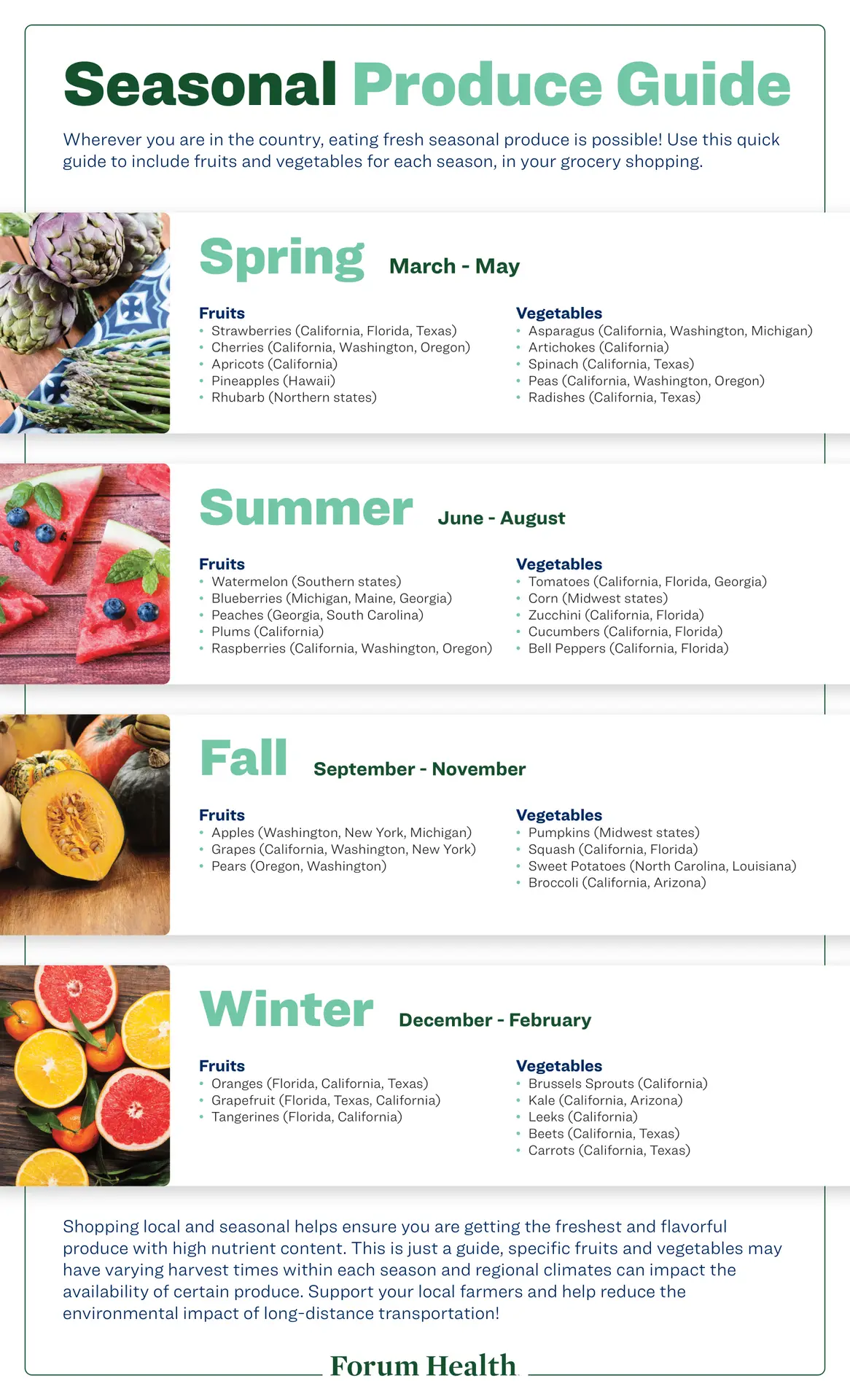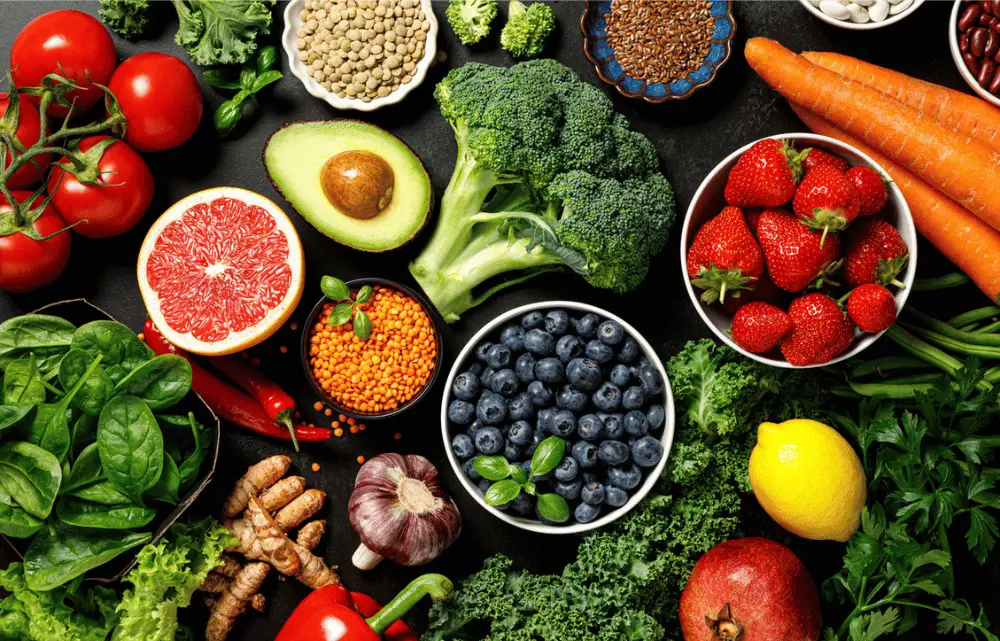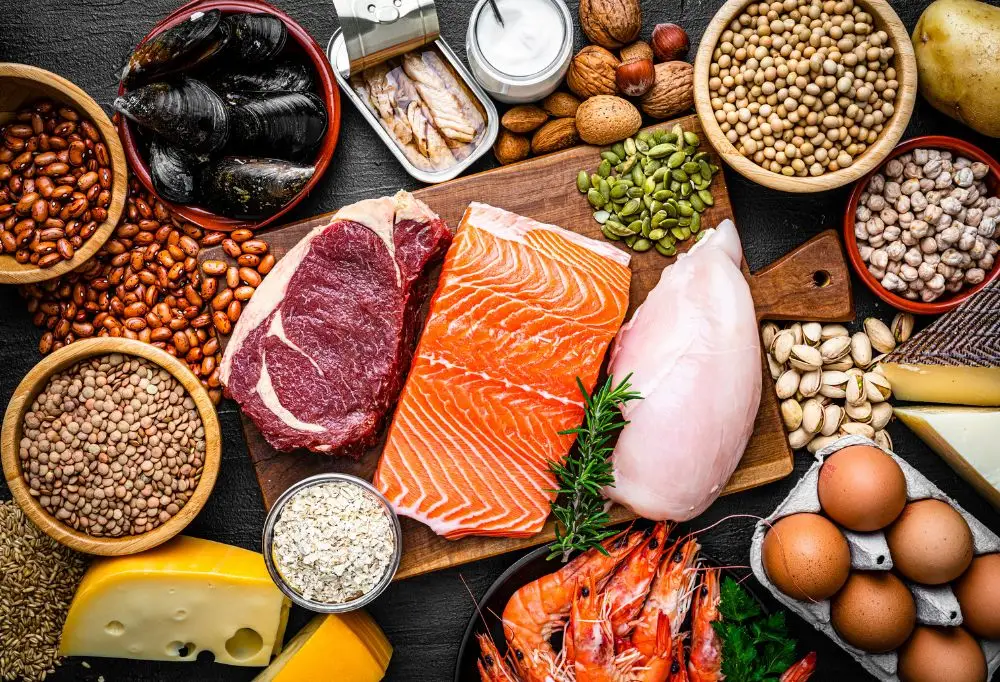Make healthy and informed choices with the EWG’s 2023 Dirty Dozen and Clean 15 produce lists, as well as a seasonal produce guide and top tips from Forum Health’s nutritionists.
You strive to make the best choices for your well-being and one crucial aspect is what you eat! Including a variety of fresh fruits and vegetables is essential for a balanced diet, but have you ever wondered which produce items are most affected by pesticides?
Pesticides are chemical substances designed to kill pests and insects to prevent them from damaging crops. However, pesticides can leave residue on produce even after washing, potentially posing health risks when consumed regularly.
Exposure to pesticides has been linked to various health issues, including hormone disruption, neurological problems, and certain cancers. By choosing organic produce for the Dirty Dozen and conventional options for the Clean 15, you can reduce your pesticide intake significantly, promoting better health and overall well-being.
What are the EWG’s Dirty Dozen and Clean 15 produce lists?
The Environmental Working Group (EWG) releases an annual “Dirty Dozen” and “Clean 15” list, based on an analysis of pesticide residue data from the United States Department of Agriculture (USDA), to help you make informed decisions about your grocery shopping.
The Dirty Dozen highlights the twelve produce items most likely to contain high levels of pesticide residues and is recommended to always buy organic. Organic produce is grown without synthetic pesticides, herbicides, or genetically modified organisms (GMOs), reducing your exposure to harmful chemicals.
The 2023 EWG’s Dirty Dozen list includes:
- Strawberries
- Spinach
- Kale, collard & mustard greens
- Peaches
- Pears
- Nectarines
- Apples
- Grapes
- Bell & Hot Peppers
- Cherries
- Blueberries
- Green Beans
The 2023 EWG’s Clean 15 list includes:
- Avocados
- Sweet corn*
- Pineapple
- Onions
- Papaya*
- Sweet peas (frozen)
- Asparagus
- Honeydew melon
- Kiwi
- Cabbage
- Mushrooms
- Mangoes
- Sweet Potatoes
- Watermelon
- Carrots
*These items in the United States may be produced from genetically modified seeds.
The Dirty Dozen and Clean 15 lists serve as valuable tools for you to prioritize organic purchases and minimize pesticide exposure. But what else can you do?
Tips for Produce Shopping for Better Health and Reducing Toxin Consumption
Shop Locally and Seasonally:
Visit local farmers’ markets to find fresh, seasonal produce. Local farmers often use fewer pesticides, and the produce doesn’t need to travel long distances, preserving its nutritional value and lowering the carbon footprint.

Wash and Scrub Produce Thoroughly:
Regardless of whether you choose organic or conventional produce, always wash fruits and vegetables under running water. Use a brush to scrub items with thicker skins, like potatoes and cucumbers, to remove any surface residues effectively. DIY produce cleaners like vinegar or baking soda are popular to help clean produce, and you can also find a produce wash at your local grocery store – just make sure to read the ingredients!
Grow Your Own Fruits, Vegetables and Herbs:
If possible, start a small home garden to grow some of your favorite produce. This way, you have control over what goes into the soil and can ensure you are consuming fresh, pesticide-free fruits and vegetables. This is also a great activity to do with your family!
Lists like the Dirty Dozen and Clean 15 lists are invaluable resources for making healthier choices and significantly reducing your exposure to harmful pesticides. Embracing these recommendations not only benefits your health but also supports sustainable farming practices and promotes a cleaner environment.
At Forum Health, our team of experienced nutritionists and health coaches are here to support you on your journey to better health. With our personalized medical weight loss program, we provide comprehensive guidance and strategies tailored to your unique needs and goals. Our health coaches are trained in both nutrition science and counseling, helping you overcome barriers and meet your health goals. We take a whole-person approach to diet and nutrition, combining advanced modern medicine with powerful functional and integrative medicine principles.
To learn more about how toxins from your food and environment could be affecting your health, schedule an appointment or find a Forum Health clinic nearby.






